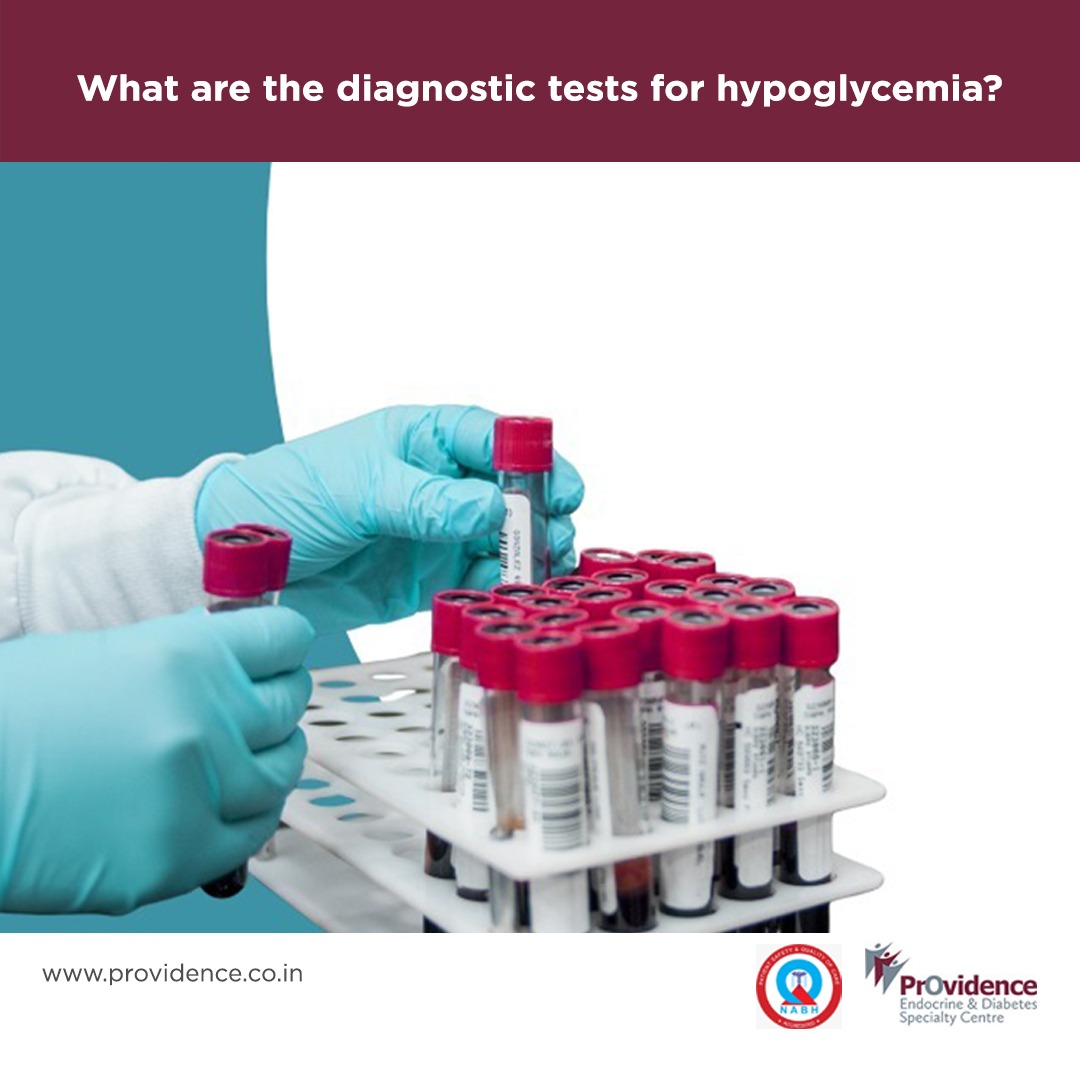Hypoglycemia is a condition where blood sugar (glucose) level is lower than the standard range (below 70 mg/dL). A timely and accurate diagnosis is essential to prevent complications, particularly in cases of unrecognized or recurrent hypoglycemia.
Hypoglycemia is often associated with diabetes. Hypoglycemia in diabetes is usually related to treatment. Non-Diabetic hypoglycemia must be investigated thoroughly. It can arise from underlying disorders such as insulin overproduction, medication side effects or hormonal deficiencies.
Diagnosing hypoglycemia involves a combination of clinical evaluation and specific laboratory tests to determine the underlying cause and guide appropriate treatment. The diagnostic tests help to differentiate between Insulin dependent or Insulin independent hypoglycemia and Iatrogenic hypoglycemia.
Specific Diagnostic Tests for Hypoglycemia :
Blood sugar levels to determine the severity of hypoglycemia
• <70 mg/dL: Low
• <54 mg/dL: Severe Hypoglycemia
Critical Sample Collection
During a hypoglycemic episode blood should be drawn for Glucose, Insulin, C-peptide, Cortisol, Growth Hormone and Sulfonylurea/meglitinide screen when the corresponding RBS is <45 mg/dL. This helps in confirming whether the disease conditions causing hypoglycemia can be due to Insulin dependent hypoglycemia, Insulin independent or Iatrogenic.
Investigations to determine the cause for hypoglycemia
I. Insulin dependent Hypoglycemia
1. C-peptide
- Measures the levels of C-peptide (the byproduct of insulin production)
- Low C-peptide can suggest exogenous insulin administration (eg: insulin injections)
- High C-peptide indicates endogenous insulin overproduction, such as in Insulinoma.
2. Insulin Levels :
Insulin levels are checked to assess whether the pancreas is overproducing insulin, which can be a cause of hypoglycemia.
3. Insulin Antibodies :
If the body is producing antibodies against insulin, it can lead to insulin-dependent hypoglycemia. Testing antibodies can help in the diagnosis.
II. Insulin independent Hypoglycemia
Tests for Cortisol levels, TFT (Thyroid Function Test) and GH (Growth Hormone) may be conducted to investigate the possibility of other endocrine disorders such as adrenal insufficiency, hypothyroidism and Growth Hormone deficiency.
III. Iatrogenic
Sulfonylurea/Megalitinide Screen :
These are medications that can cause hypoglycemia. A screen for these medications in the blood and urine helps identify if they are contributing to the low blood sugar.
The evaluation of hypoglycemia requires a strategic approach, integrating symptoms, history with biochemical tests. Proper timing of sample collection especially during a spontaneous or induced hypoglycemic episode is critical. Accurate diagnosis not only guides effective treatment but also prevents recurrent episodes and associated morbidity.
Mrs. Manju M J, Msc



